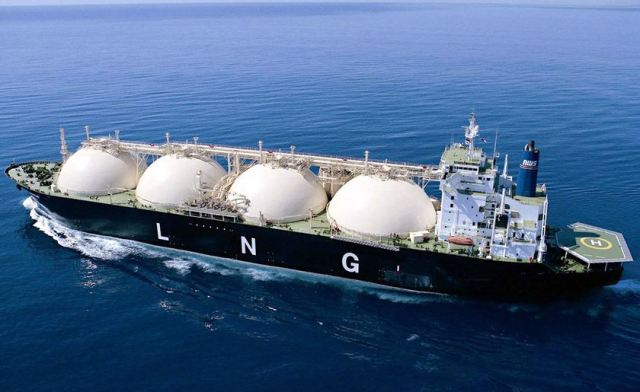Nagy Advocates for Public Intervention in Corporate Sector to Solve Energy Crisis

Minister for Economic Development Márton Nagy speaking at the AmCham forum in Gundel.
Photo by Lázár Todoroff / AmCham
Minister for Economic Development Márton Nagy argued that addressing the current energy crisis requires public intervention in the corporate sector at an event organized by the American Chamber of Commerce in Hungary.
He told guests at Gundel Restaurant on September 22 that, due to the very challenging times, it is essential he step out and talk with companies about possible problems.
“I will spend much more time meeting with companies. My door is open to everyone,” Nagy reassured the business audience.
He argued that the foundations of the Hungarian economy are strong, but there are more asymmetries arising within the indicators, which means that the government has to be very targeted in its support.
Nagy explained that energy prices in both Europe and Asia had risen sharply, especially compared with prices in the United States, adding that today, gas prices in America are less than a third of those in Europe.
He further argued that Europe might face an even harder time once the EU oil embargo against Russia comes into effect after December. Currently, there is a more than USD 20 spread between the price of Ural and Brent oil types, and stopping deliveries via sea might exacerbate the energy crisis on the continent. Despite that, he noted, Hungary will keep receiving oil from Russia thanks to an embargo exemption applied by the European Union to oil deliveries via pipeline.
Nagy believes there are several ways to tackle the increase in energy prices at a European level. The first is through comprehensive cost-based electricity pricing. He made the point that the current pricing mechanism of the European energy market is highly inefficient as it allows natural gas prices to drive electricity prices even though only about 30% of electricity production is based on it.
“Effective regulation could drive down the current price level by a fifth by creating a cost-based pricing mechanism that only allows industry the application of a fair profit,” the minister said.
Excess Profit Tax
The second proposed solution was an excess profit tax on the energy sector, which could bring about an opportunity to subsidize the energy costs of the population in need.
Nagy also blasted so-called speculators for the volatility of the markets and the rising energy prices. He told the audience that a strict regulatory framework would effectively prevent excessive speculation and restore market liquidity.
The fourth European-level measure supported by the minister was extending the mandate of monetary policy. Nagy called for central banks to be given the ability to influence the energy market (even temporarily) by allowing interventions in energy prices.
At the national level, the minister envisioned three ways to tackle the current energy crisis.
The first was dubbed the “Great Reset,” essentially letting some ineffective sectors go and putting domestic industrial policy on a new basis.
The second approach, which Nagy tagged as “Helping Everyone,” or the “German Way,” is assisting all sectors equally with a large amount of money, which has significant budgetary implications. The minister criticized the German policy of distributing aid in an untargeted way, calling it “helicopter money.”
The third means, or the “Hungarian Way,” as referred to by the minister, is a targeted industrial support policy, taking into account budgetary constraints.
None Left Behind
“We do not leave anyone behind, but at the same time, it is crucial to subsidize in a targeted manner,” Nagy told the AmCham audience. He added that the government had identified about 24 sub-sectors where the energy intensity was more than 10%. These sectors range from the manufacturing of flat glass to the extraction of peat.
To help companies deal with rising energy costs, the government has envisioned three pillars of support.
The first is an “Energy Cost and Investment Endowment Program for Manufacturing SMEs,” which is currently in motion. The program aims at alleviating the financial burden of increased energy costs to provide energy-intensive Hungarian manufacturing SMEs with financial support when making energy efficiency investments while also considering job security aspects.
Nagy noted that supporting SMEs is vital as there is a risk that short-term supply disruptions may negatively affect their competitiveness. In turn, the loss of export market competitiveness could also have long-term detrimental consequences.
To be eligible for the program, the main activity of the company’s operation must come from the energy sector, and its energy costs in 2021 must amount to more than 3% of sales revenue from the same year. In addition, the company is obliged to retain 90% of its Q3 2021 statistical staff headcount until Q3 2023.
The second pillar is the so-called “Factory Rescue Program,” which is still under development. Its main goal is to provide investment support for the 50-100 biggest manufacturing companies, focusing on aiding their energy efficiency investments.
Nagy said that the third pillar is the “Job Protection Program,” which will become an option if unemployment starts to rise. He noted that, in recent years, the most successful instruments to tackle joblessness were tax burden relief, and simplified tax conditions with benign requirements.
This article was first published in the Budapest Business Journal print issue of October 7, 2022.
SUPPORT THE BUDAPEST BUSINESS JOURNAL
Producing journalism that is worthy of the name is a costly business. For 27 years, the publishers, editors and reporters of the Budapest Business Journal have striven to bring you business news that works, information that you can trust, that is factual, accurate and presented without fear or favor.
Newspaper organizations across the globe have struggled to find a business model that allows them to continue to excel, without compromising their ability to perform. Most recently, some have experimented with the idea of involving their most important stakeholders, their readers.
We would like to offer that same opportunity to our readers. We would like to invite you to help us deliver the quality business journalism you require. Hit our Support the BBJ button and you can choose the how much and how often you send us your contributions.









